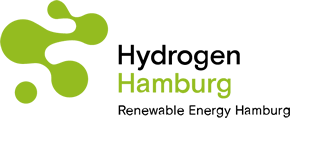Details
Presenting the Hanseatic Hydrogen Center for Aviation and Maritime (H2AM) New research association for North Germany
Hamburg is becoming one of three research locations with a focus on hydrogen applications in mobility. Shipping and aviation companies can play a part in researching and testing components and processes.

Hamburg is becoming one of three research locations with a focus on hydrogen applications in mobility. Shipping and aviation companies can play a part in researching and testing components and processes.
The H2AM is part of the National Innovation and Technology Centre for Hydrogen Technology (ITZ H2). The institutions of ITZ H2 are set up as centres of service provision for SMEs and the R&D projects as development hubs for hydrogen applications in mobility. They are places where the whole value chain of hydrogen technologies is mapped out, with a focus on corresponding components, the hybridisation of transmissions, refuelling concepts, logistics, storage and preparation of green hydrogen and hydrogen-based fuels as well as testing components and systems. In the north, the focus is on aviation and shipping, for which there is a division between the locations Bremen/Bremerhaven, Hamburg and Stade. Hamburg is responsible for the construction of a development and testing centre for systems and refuelling. The funding decision for this was delivered on 6 March 2025.
The aviation section, with a focus on hydrogen-based fuel cell integration, fuel cell installation, ground operations/refuelling and maintenance is managed by the ZAL Center of Applied Aeronautical Research.
The maritime division researches and tests with a focus on system development and integration of fuel cells, multi-fuel refuelling and development of norms and regulations, and is based at the Fraunhofer CML.
A brief look back: from ITZ North to H2AM
There was an initial participative competition organised by the Federal Ministry of Transport and Digital Infrastructure (BMDV) for a “national innovation and technology centre of hydrogen technology for mobility applications” in 2021[OS1], which Hamburg entered. Six locations were selected at this time, three of which were in North Germany. The location coordinators were the business development agencies, including Projektentwicklung Stade, BIS Wirtschaftsförderung Bremerhaven, ZAL and die hySOLUTIONS GmbH. Their task was to present an integrated concept that would include all transport modes. Under the motto “strengthen strengths!”, the North German cities placed their focus on their competencies in the fields of aviation and shipping. This makes sense because thanks to the concentration of OEMs and suppliers here, a unique value creation depth can be mapped out, promoting decarbonisation in non-electrifiable sectors.
The BMDV then commissioned a feasibility study from Prognos, which presented its findings in late July 2022. This was followed by a consultation by the German government with the EU Commission, which also lasted around one year. The necessary differentiation between economic and scientific activity was a central point of the concept development here. The next step was the choice of an orientation towards research and development for the project in consultation with the partners. Overall the process from submission of the application to the funding decision lasted four years.
Originally there was only supposed to be a centre for Germany, from which the plan for multiple specialised centres subsequently developed. ITZ was always purely a working title. As the project became more concrete, it became necessary to find a more international name.
Structure and concept of the research institutes
There is no umbrella organisation; only an existing cooperation with the other centres. These centres act as autonomous modules that collaborate closely. A precise understanding of the regulations is important in each case. The fields are allocated as follows: the rail topic area is based at the HIC Hydrogen Centre in Chemnitz, heavy cargo logistics at TrHy – The Hydrogen Proving Area in Duisburg and at the Hydrogen Technology User Centre (WTAZ) in Pfeffenhausen, Bavaria. In the north, researchers work on issues relevant to both ocean shipping and inland navigation. The choice of locations reflects existing specialisations in the aviation and shipping sectors. The partners involved have described their experiences so far as a kind of best practice for North German cooperation.
The integrated concept is structured in such a way that the partners work complementarily rather than competitively. The whole value creation chain is taken into consideration and divided up into individual packages of tasks. The big corporations in shipbuilding and aircraft manufacturing have an interest in the capacity of the new service offers to deliver benefits for their whole supply chains, i.e. the suppliers (system and component manufacturers). Suppliers and SMEs need to be given discrimination-free access to the new service offers.
The locations complement each other in terms of the hydrogen value creation chain
The focus is on questions of materials, system integration, refuelling and the associated processes. When it comes to multifuel bunkering, component tests and preparatory work take place to promote standardisation. The findings from the test runs flow into the development of the hardware and into the development of refuelling protocols. Other planned test stands are designed for system integration and adaptation. In the Technology Transfer Centre Bremerhaven (ttz Bremerhaven), for example, there is a wave simulator that can be used for validating the performance of hydrogen systems on board ships under real-life conditions.
Positive effects for the hydrogen economy in the region
Higher-level targets are competitiveness, regional value creation and defence-readiness/resilience through diversification. The activities at H2AM are intended to accelerate the market launch for hydrogen and to contribute to the market preparation for the use of alternative fuels in aviation and shipping.
Specific products or components can be tested in a real-life context, for example tanks and inspections. The laboratories will have capacities that are also intended to facilitate networking between stakeholders within H2AM.
Infrastructure development will be a priority over the coming years. At the same time, synergies can be generated through existing infrastructures, for example in ZAL II.
This text was written with the collaboration of Peter Lindlahr, hySOLUTIONS


